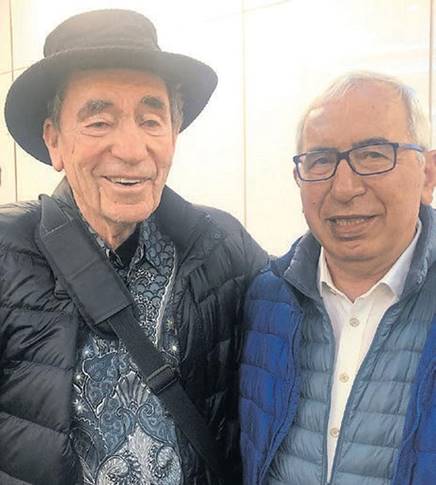The following article written by Oral Çalışlar covers DPI’s recent online roundtable ‘The Legal Basis for Peace: Constitution Making in Polarised Societies’ held on 10 August 2021
Two years ago, I met with him in a meeting in South Africa, and we had a long conversation. He is a well-known human rights activist as a white man from South Africa. He is 86 years old. He is known as Albie in South Africa; his full name is Albert Louis Sachs. He was an appointed as judge to prepare by Nelson Mandela South Africa’s Constitution. Yesterday, I attended an online meeting with him. He is among the people who played a significant role in ending the apartheid regime in South Africa.
He is one of the judges who had a significant impact on the process that resulted in the release of Nelson Mandela from prison. Albert `Albie` Louis Sachs started working on human rights as a law student at Cape Town University. He took part in the Congress of the People of Kliptown, where the Freedom Charter was adopted. Then, Albie started practicing as an advocate at the Cape Town Bar. As an advocate, he defended people sentenced by capital punishment because of the convictions of the racist and oppressive regime of South Africa. He was placed in solitary confinement two times without a trial.
From Exile to Constitution Making
He fled from South Africa in 1966 and enrolled again to a law school in England for 11 years. He worked as a tenured professor of law in Mozambique for another 11 years. In the 1980s, he worked closely with the exiled leader of the African National Congress to prepare the code of conduct and the organisation’s charter. In 1988, he lost his right arm and vision in one eye due to a bomb planted in his car by South African security services.
In 1990, he played a significant role in the negotiations that resulted in establishing a constitutional democracy in South Africa as a member of the Constitutional Committee and African National Council’s Executive Board. After the first democratic election in 1994, the elected President Nelson Mandela appointed him as a member of the newly established Constitutional Court. After that, he travelled to many countries to share the South African experience in constitution-making.
He works for the normalisation of polarised societies. Albie was a keynote speaker in an online roundtable meeting titled “The Legal Basis for Peace: Constitution Making in Polarised Societies” organised by the Democratic Progress Institute (DPI). He shared his experience on the peace process in South Africa. One of the intriguing parts of his speech was women’s interventions in making a new and egalitarian constitution. He said, “Because we were against racism and we were egalitarian, we misjudged the women’s side of the equation, and we angered women in South Africa. Then, we came to our senses, and sexism became a topic in our constitution. Therefore, women took part in every step in the process of constitution-making in South Africa. Sexism was one of the most challenging topics for the South African Constitution, but we learned new things in every step from the women involved.”
Links: https://www.posta.com.tr/yazarlar/oral-calislar/albie-guney-afrikanin-beyaz-isyancisi-2361331
